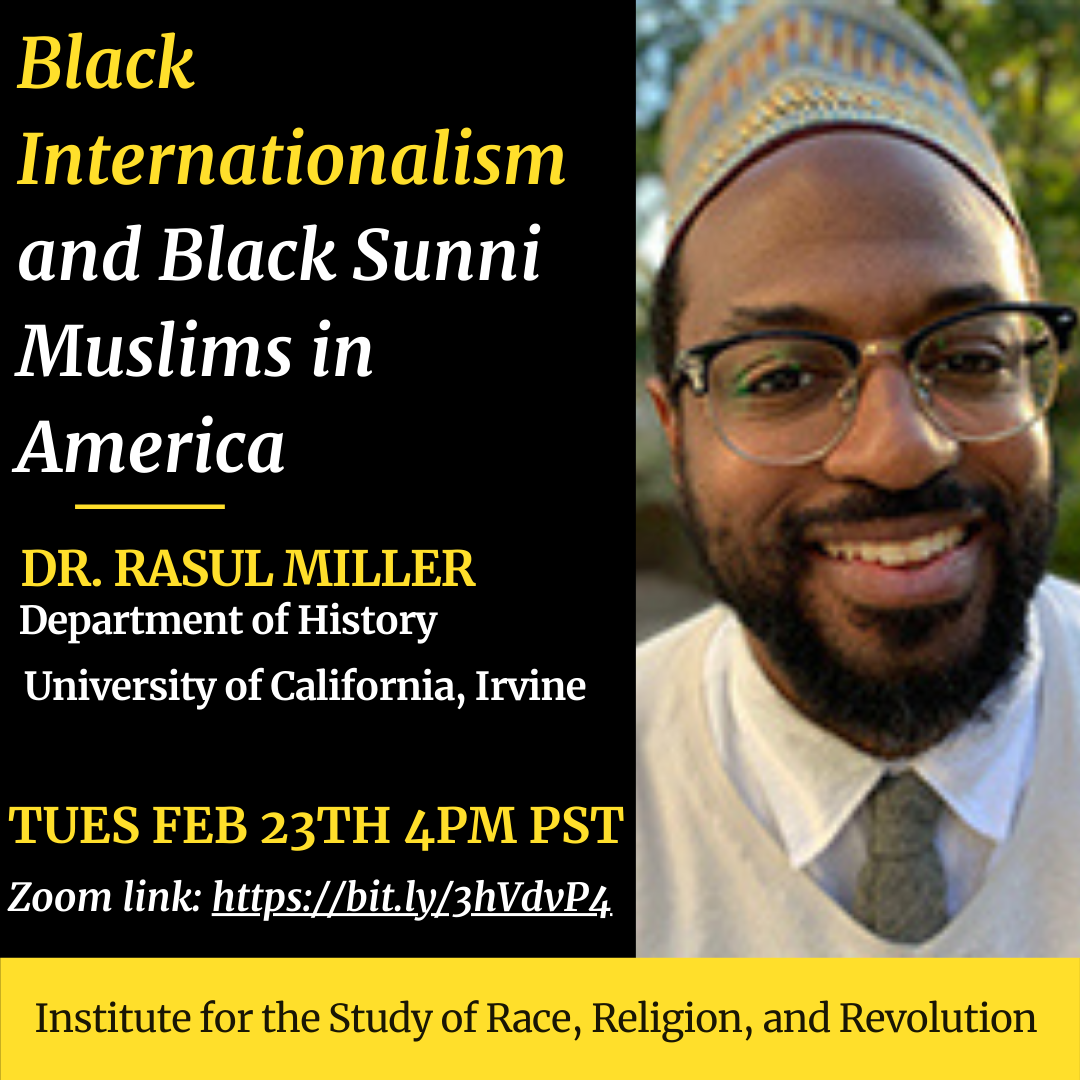
- This event has passed.
ISRRAR Event–Dr. Rasul Miller, “Black Internationalism and Black Sunni Muslims in America”
February 23, 2021 @ 4:00 pm - 6:00 pm

During the interwar period, the historic neighborhood of Harlem was home to a thriving Black political scene that included Garveyites, Communists, labor organizers, anticolonial activists, and politicized adherents of various new Black religious congregations. Shaykh Daoud Faisal and Mother Khadijah Faisal, the architects of New York City’s first lasting Black Sunni Muslim community worked as artists, organizers, and propagators of Islam for over a decade in 1920s and 1930s Harlem, and were deeply impacted by its Black internationalist political and cultural character. Upon moving to Brooklyn Heights in 1930 they built one of the twentieth century’s most influential Muslim religious communities in the US. In this talk, Dr. Rasul Miller (History, UC Irvine) explores the impact of Black internationalism on this formative Black Sunni religious institution, and the broader Black Sunni religious and cultural orientations it helped to foster.
Join this Zoom event here: https://bit.ly/3hVdvP4
This event is part of the ISRRAR Winter Quarter series.
Professor Butch Ware and the ISRRAR announce the Winter Quarter schedule for HIST 210RA: Race, Faith, Revolution. Graduate students are invited to register for this 2-unit seminar and to sign up for the listserv at http://tinyurl.com/ISRRARListServ.
How have Black metaphysics articulated with racial politics in order to advance efforts of justice, liberation, and self-actualization? In this very special year of 2021, our seminar will take on manifestations of anti-black racism and imperialism, as well as African and African Diasporic efforts to mediate between the seen and unseen worlds in struggles for justice.
This graduate seminar is part of a broader collaborative process meant to engage graduate students and faculty alike. The Initiative for the Study of Race, Religion, and Revolution (ISRRAR) seeks to foster a conversation on intersections of spirituality and social change wherein works on (and by) formerly colonized peoples are central, rather than peripheral.
This approach is driven by an axial critique of the ways in which modernity’s core contradictions shape our shared pasts and presents. An era of revolutionary enlightenment, we are told, brought humanity out of the ‘dark ages.’ Freedom dawned. But this ‘age of lights’ brought the darkest of racial taxonomies, and scales of slavery and human suffering unknown to ancient and medieval worlds. Reason proclaimed its mission: liberate humanity from the bondage of irrational religion. Yet rational political economies brought global empires, world wars, and ethnic genocides. Moreover, new nationalisms have drawn on older religious repertories to define citizens and subject them to moral authority. Self-congratulatory Western tropes, however, tend to overlook the ubiquity of race and the persistence of faith, portraying them as incidental rather than fundamental.
Colonized peoples in Africa and the Americas, tell different tales. A generation of emergent scholarship has brought these forward. Scholars (many trained in interdisciplinary fields) have recovered ‘native’ narratives and ontologies of the oppressed, often dislodging dominant meta-narratives in the study of the global West. In History 210 we engage live presentations of the works of scholars, activists, and artists whose conceptualization and execution of their research breaks new ground in these domains.
